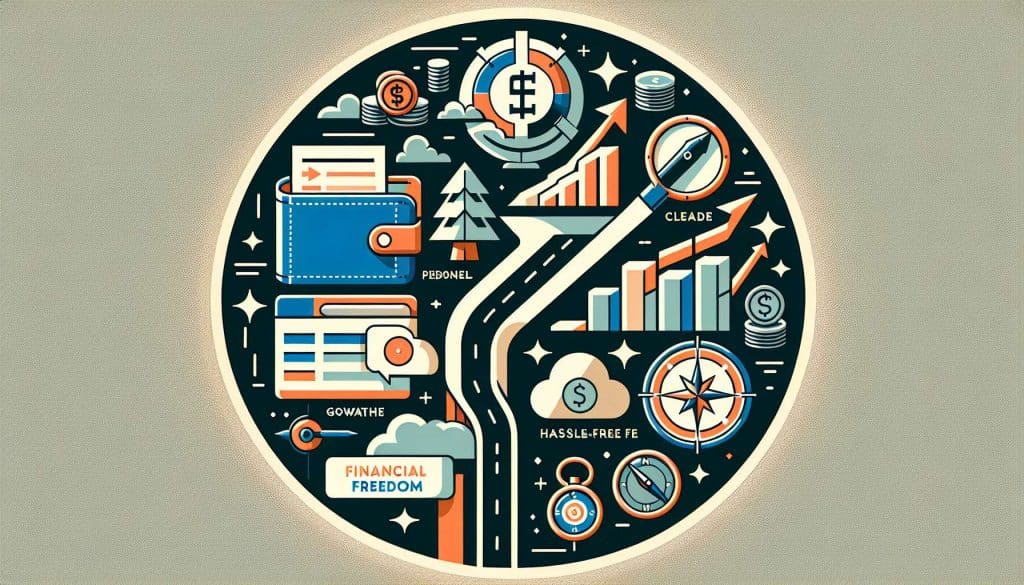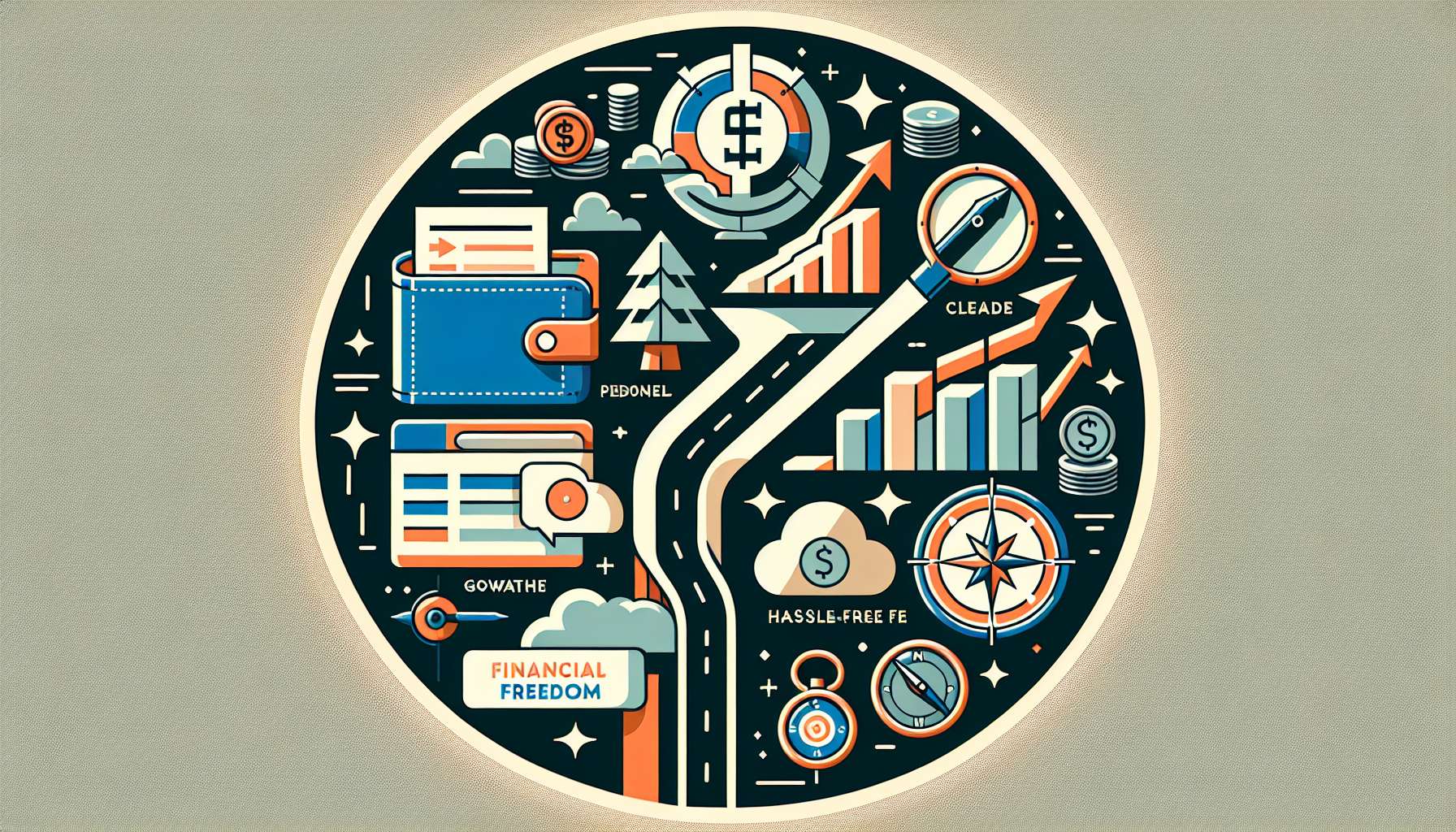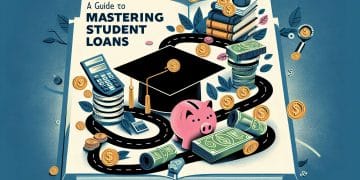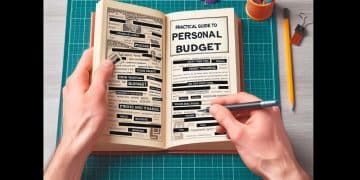Personal Budgeting Essentials: Your Path to Financial Freedom


“`html
Anúncios
Mastering Personal Budgeting: Your Path to Financial Freedom
In today’s fast-paced world, managing personal finances is paramount. Whether you’re tackling student loans or saving for a dream vacation, understanding personal budgeting is essential. Mastering budgeting not only alleviates stress but also paves the way to financial independence. Moreover, creating a budget doesn’t have to be daunting; it’s a skill anyone can acquire. This article delves into budgeting essentials, offering a roadmap to financial stability.
Developing a budget mirrors planning a significant journey. Without it, you might wander aimlessly, risking excessive spending and missed opportunities. Instead, a well-structured budget guides you towards financial security. It prevents debt accumulation, encourages savings for major expenses, and prepares you for unforeseen costs. Furthermore, budgeting fosters a mindset of discipline and foresight, making it a critical component of personal finance.
Personal budgeting requires a comprehensive understanding of your income and expenditure patterns. Start by cataloging your earnings, be it from employment, freelance work, or side gigs. Focus on net income to gauge actual spending power. Concurrently, categorize expenses. Fixed expenses are predictable, like rent, while variable costs fluctuate monthly. Also, account for occasional expenditures to ensure a realistic financial picture.
The Fundamentals of Budgeting
Setting financial goals is crucial for effective budgeting. They serve as guiding posts, directing your savings and expenditures. Goals should be precise, measurable, and realistic to ensure success. Whether short-term, like saving for a gadget, or long-term, like retirement, they anchor your financial strategies. This conscious alignment of goals propels you towards achieving financial aspirations and paves the way for a secure future.
Choosing a suitable budgeting method is vital for success. The 50/30/20 rule is a popular approach, allocating 50% of income to essentials, 30% to desires, and 20% towards savings and debt. Another option, the envelope system, involves earmarking funds for specific categories. The zero-based budget assigns every dollar a purpose, ensuring income equals expenditure. Select a method that aligns with your lifestyle and keeps you motivated.
Tracking expenses is the cornerstone of budgeting. Utilize mobile apps like Mint or YNAB to monitor spending habits effectively. Continual tracking reveals unnecessary expenditure, enabling redirection of funds to savings. These insights empower you to make informed financial decisions that align with your goals. Consistent tracking also fosters accountability and self-discipline, fostering long-term financial well-being.
Life evolves, and so should your budget. Adjustments due to career shifts, relocations, or family changes are necessary to maintain relevance. Regular budget reviews ensure alignment with current lifestyle and aspirations. They also facilitate proactive management of finances, accommodating shifts without jeopardizing goals. Embracing adaptability ensures the budget remains a dynamic tool in your financial arsenal.
An emergency fund acts as a financial cushion, guarding against unexpected events like job loss or medical emergencies. Strive to save three to six months’ worth of expenses. Initially daunting, incremental contributions build up significantly over time. This fund provides peace of mind and financial stability during turbulent times, underscoring its importance in a comprehensive budget plan.
Budgeting mistakes are easy to make, even for the diligent. Avoid underestimating expenses, overlooking infrequent costs like gifts or repairs. Neglecting budget reviews can also derail financial plans. Likewise, trivial daily expenses accumulate, disrupting financial flows. Continuous mindfulness and scrutiny of spending habits are crucial for avoiding these pitfalls and maintaining control over finances.
Characteristics of Effective Personal Budgeting
- Clear understanding of income and expenses.
- Realistic and measurable financial goals.
- Choice of adaptable budgeting method.
- Routine expense tracking and review.
- Establishing an emergency fund as a safety net.
Benefits of Personal Budgeting
Setting a personal budget offers numerous advantages. Firstly, it provides clarity on financial standing and spending patterns. This insight helps in making informed decisions, facilitating prudent financial management. Moreover, budgeting encourages disciplined saving, paving the way for future financial goals. It also instills a sense of security, knowing you’re prepared for unforeseen expenses.
Personal budgets also reduce stress related to money management. They eliminate financial ambiguity, fostering a sense of control and predictability. Consequently, individuals experience an improved quality of life, focused less on financial uncertainties and more on personal growth and achievement. This peace of mind is invaluable and a testament to the power of effective budgeting.
Additionally, personal budgeting fosters better financial habits. It promotes conscious spending, urging individuals to prioritize needs over wants. This discipline gradually becomes ingrained, leading to long-term financial success. These refined habits not only benefit individuals but also their families, promoting a culture of financial responsibility and prudence.
Modern budgeting tools enhance this process considerably. Technology simplifies financial tracking and reporting, offering insights previously arduous to attain. It automates savings, recommends adjustments, and provides motivation through goal progress trackers. This integration of technology into budgeting workflows makes the process seamless and more accessible for everyone.
Finally, mastering personal budgeting translates to financial empowerment. It equips individuals with the skills needed to navigate life’s financial challenges effectively. With confidence in their financial literacy, they can seize opportunities, enhance wealth, and secure futures for themselves and their loved ones. This empowerment transcends financial freedom, enriching lives holistically.
“`





